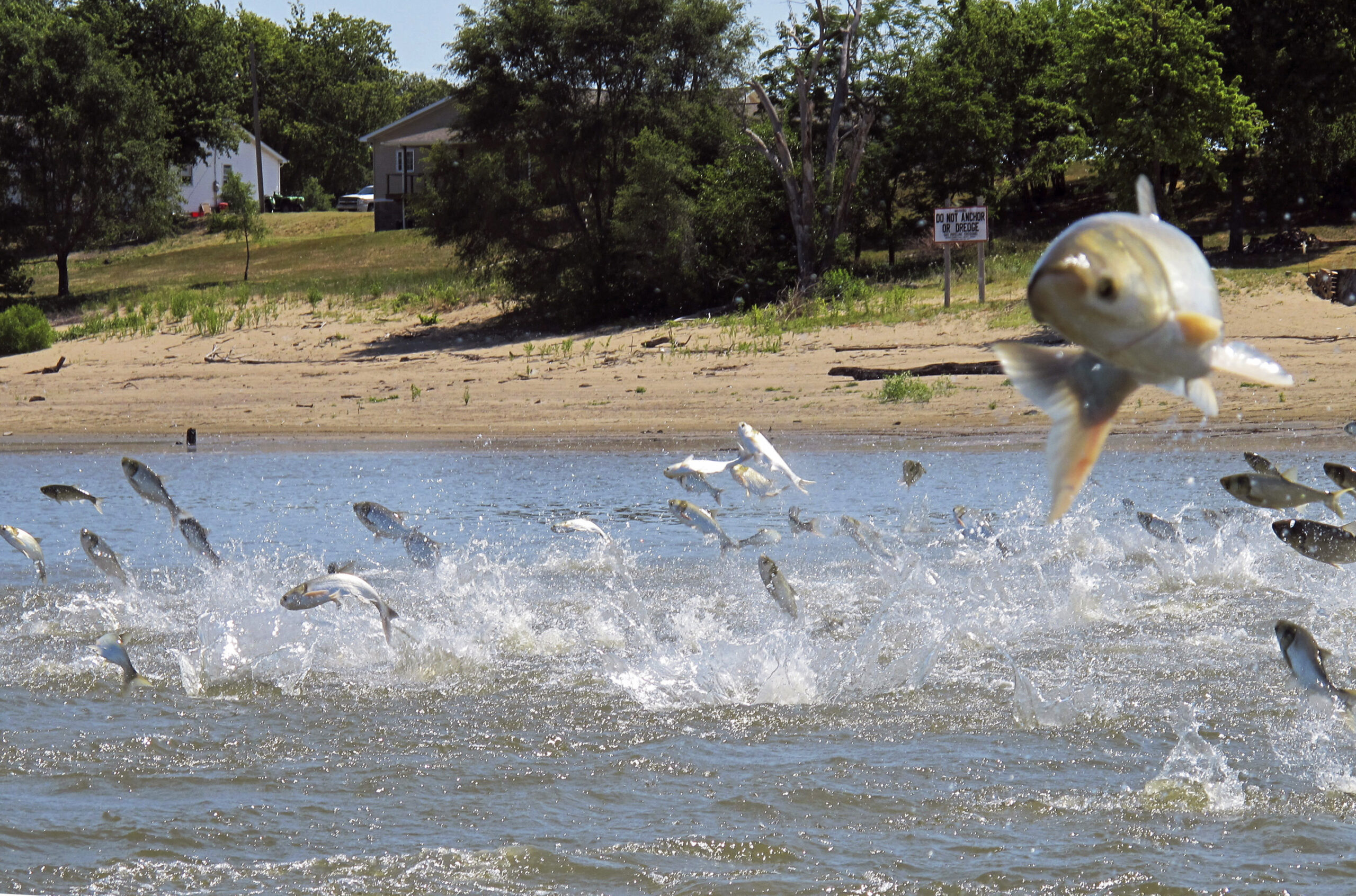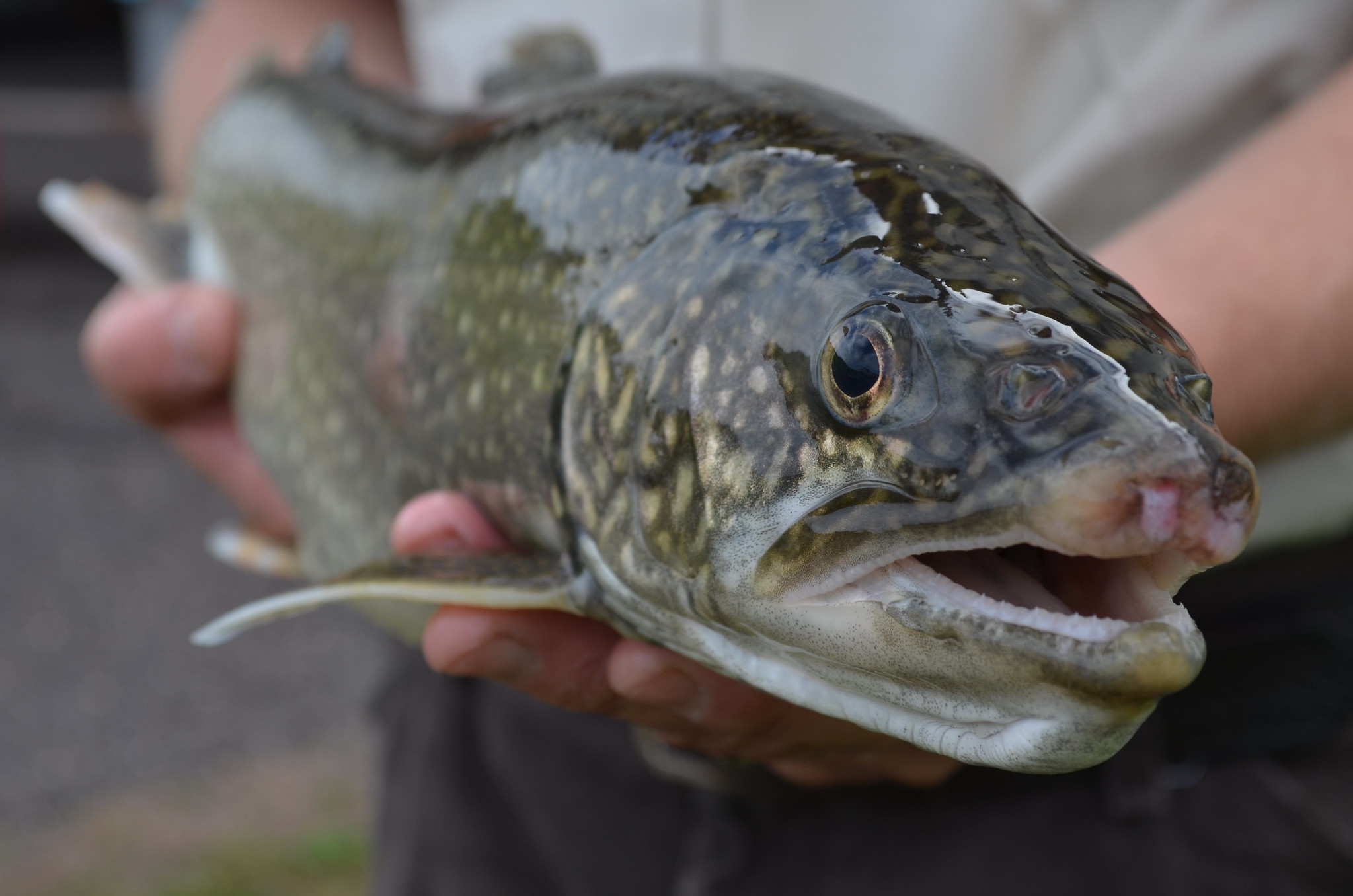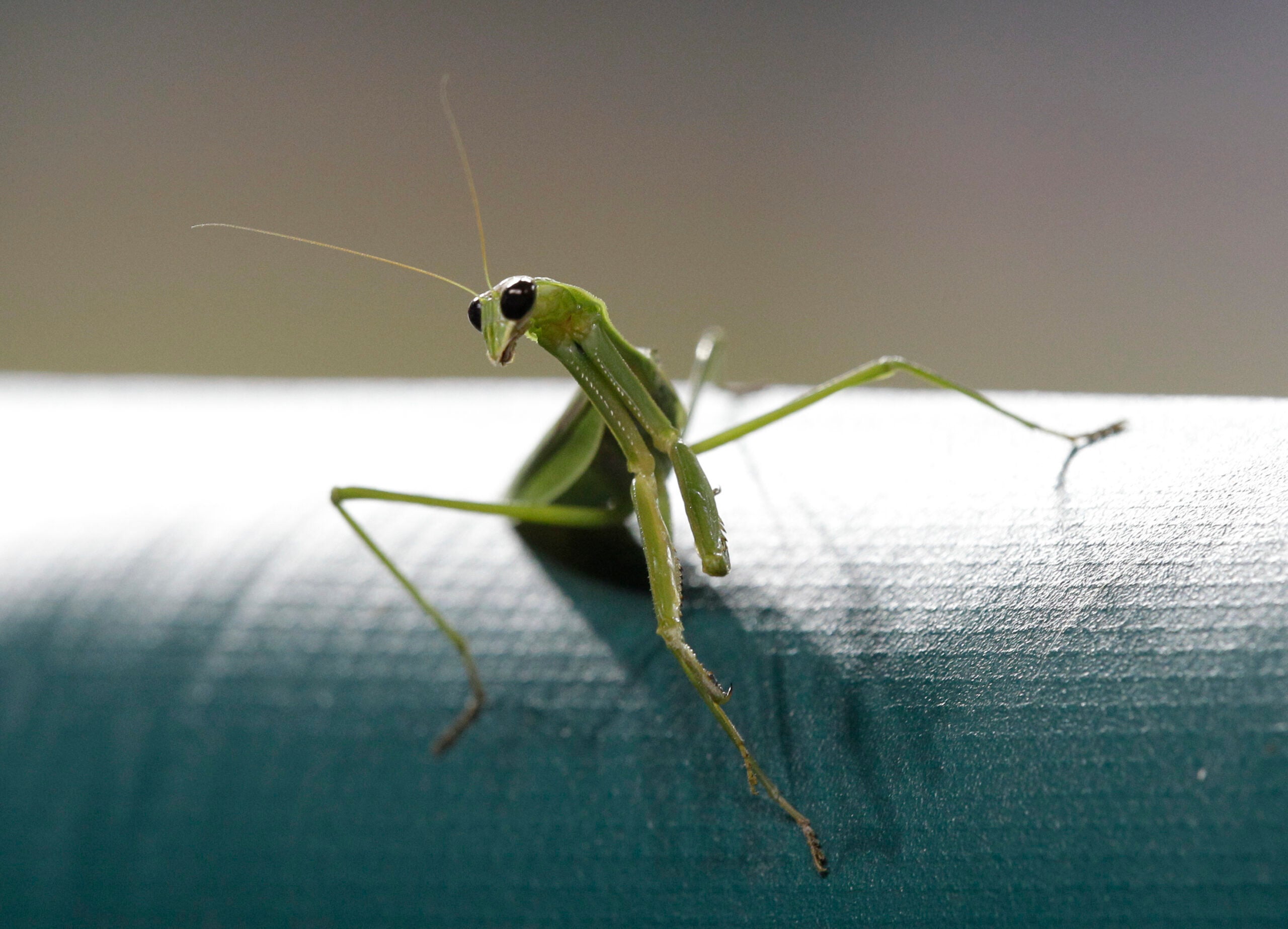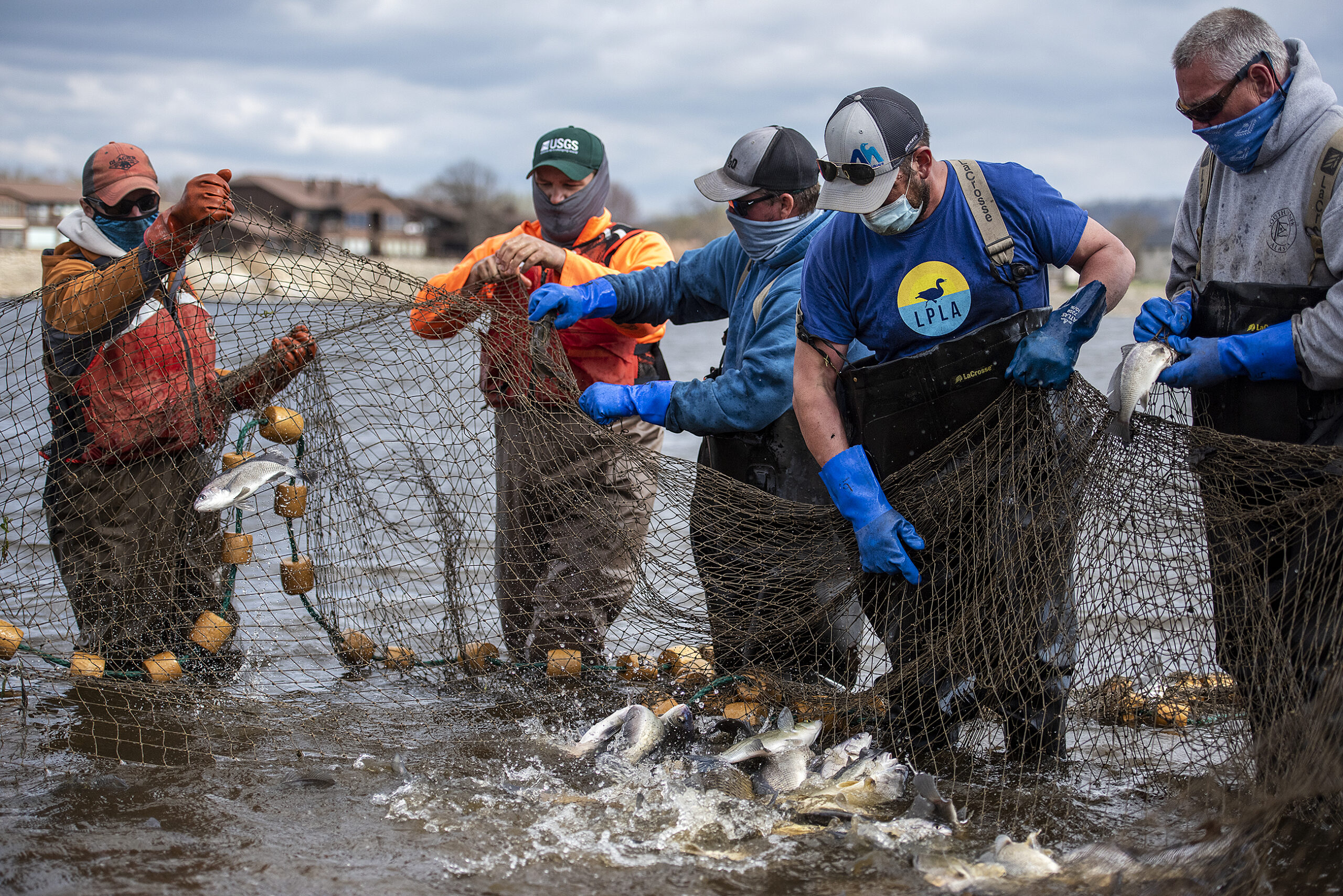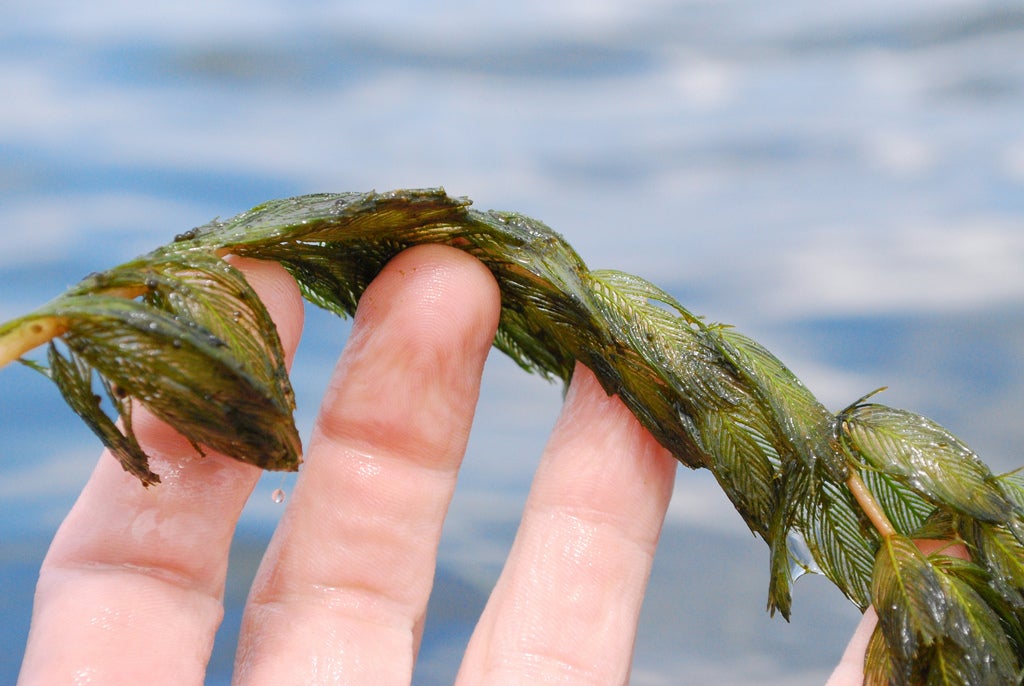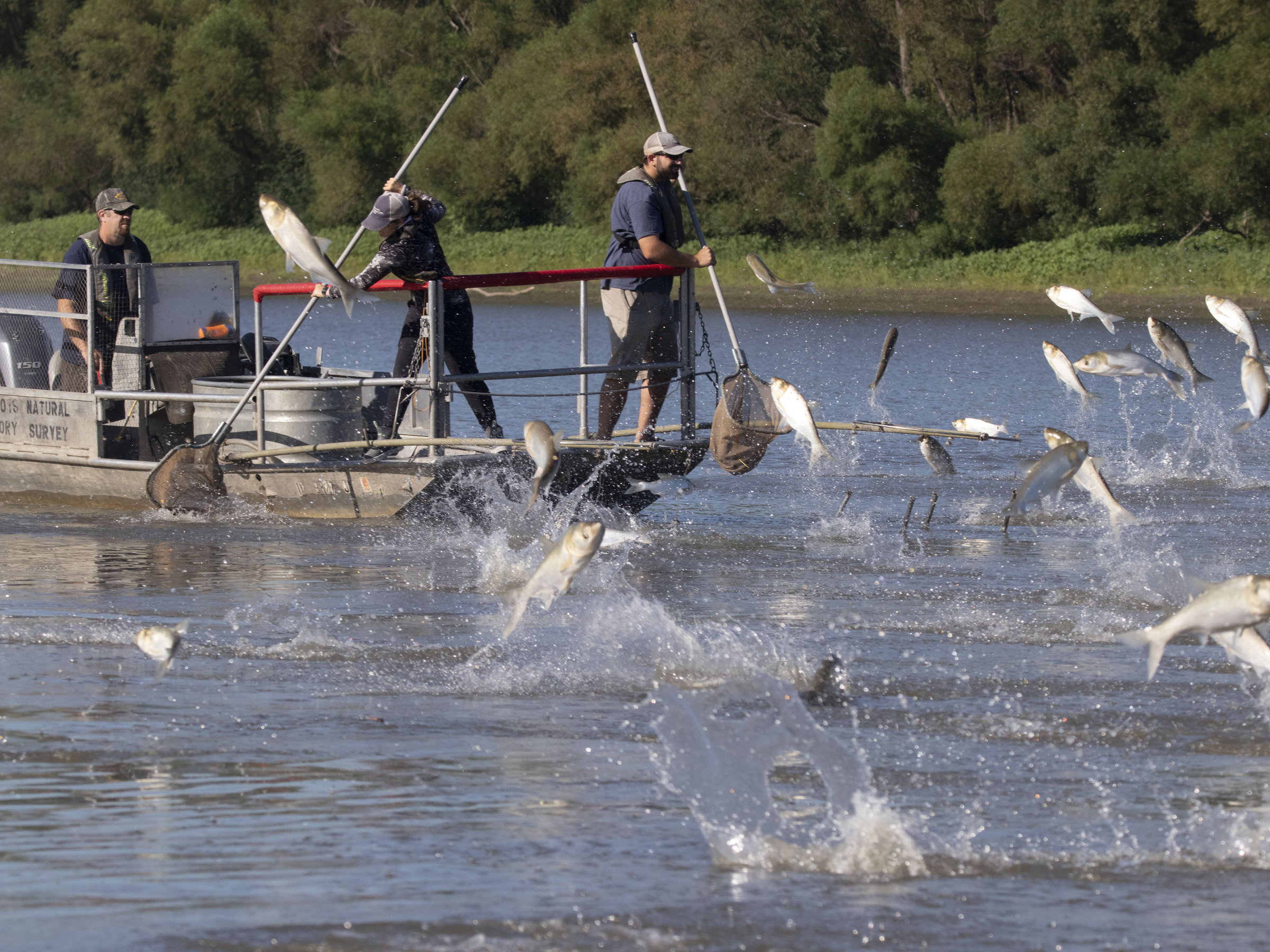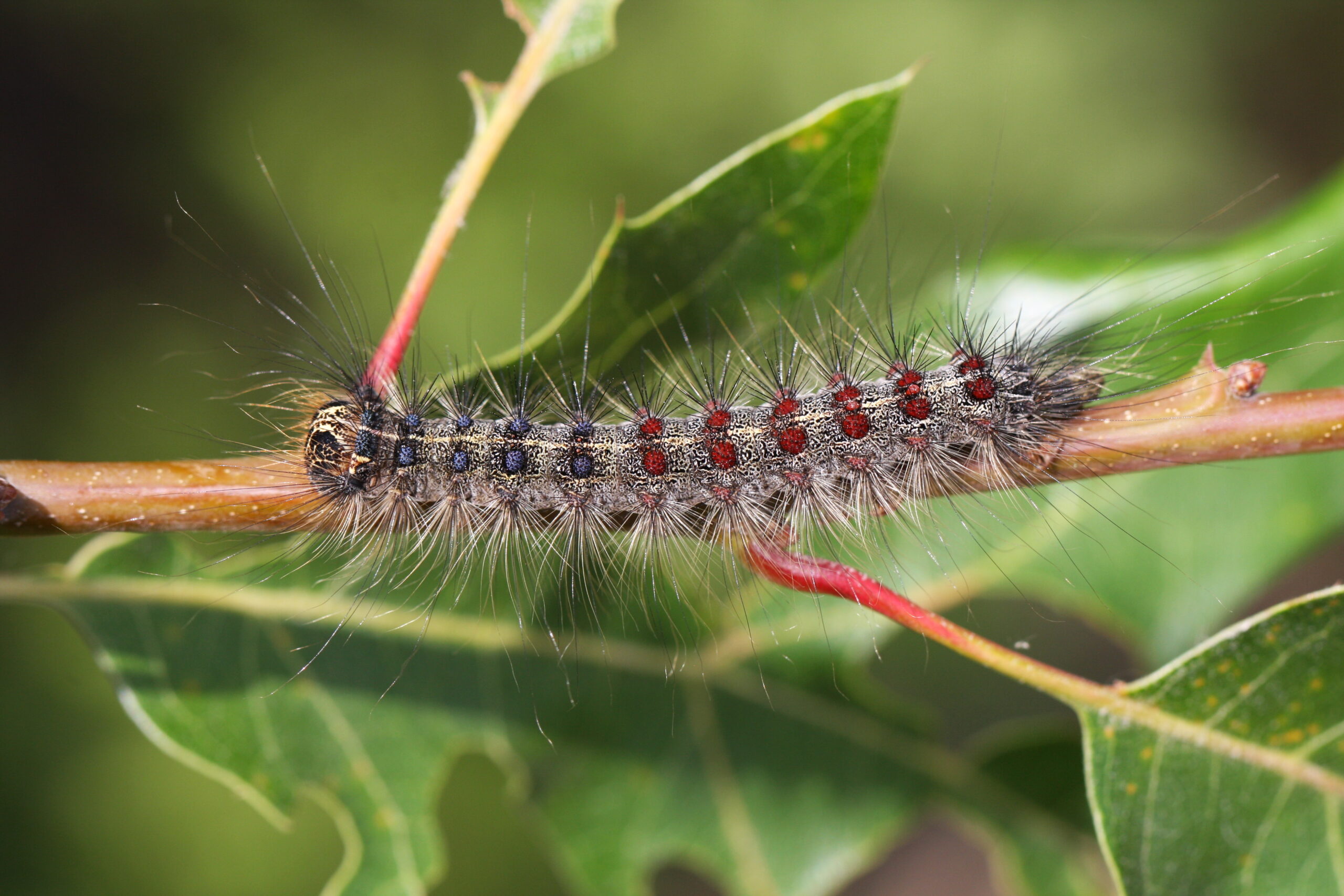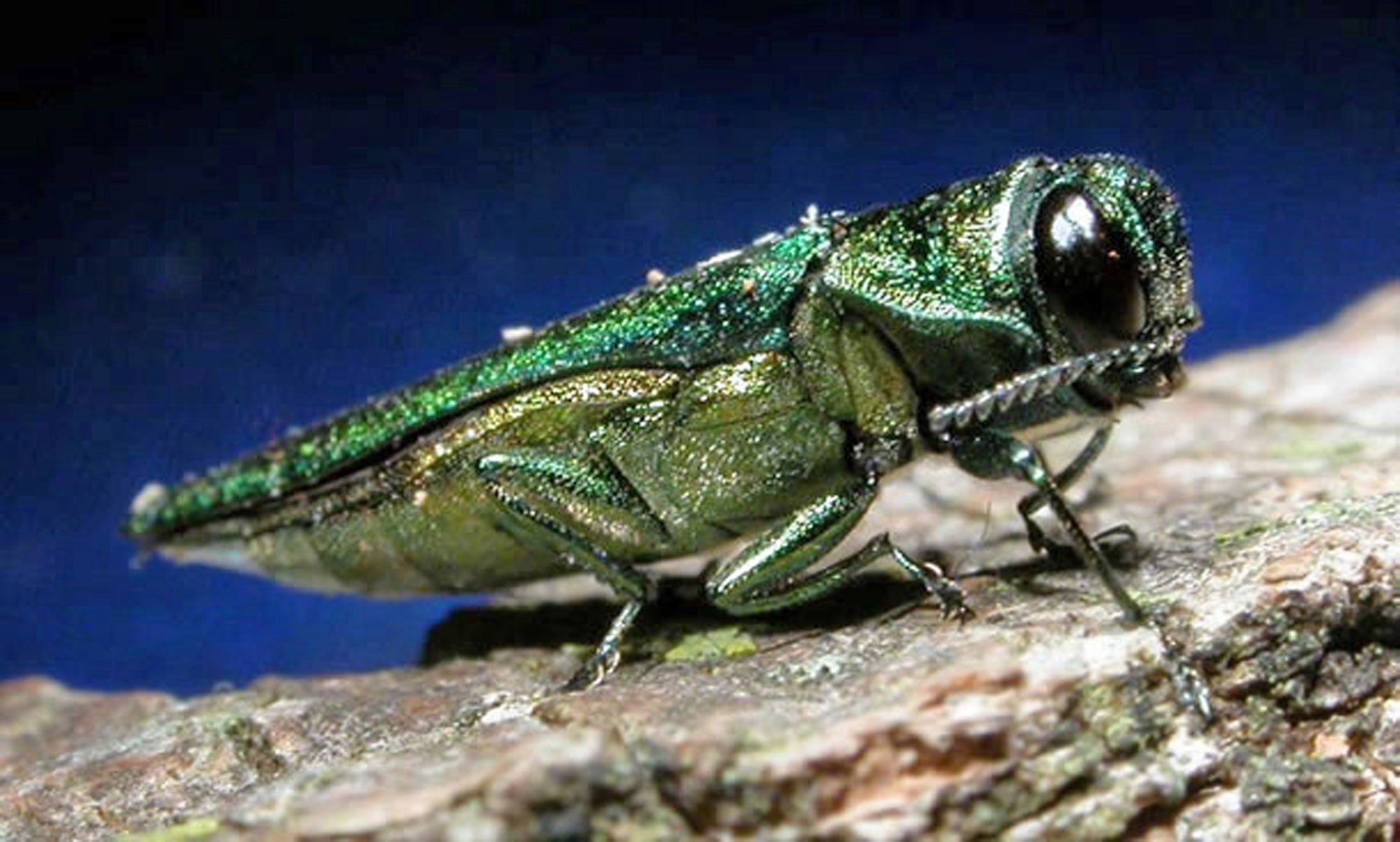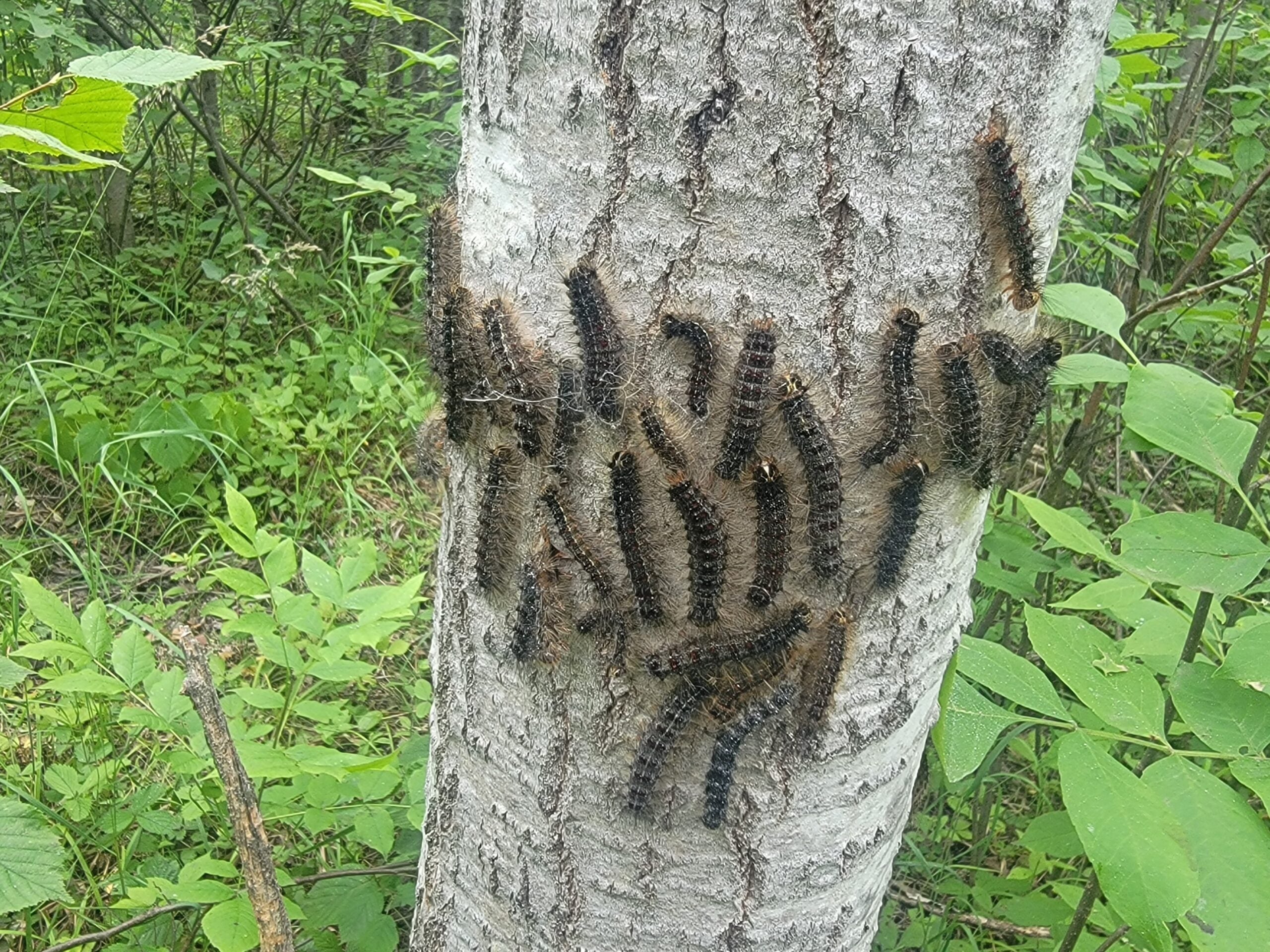Invasive Species
-
Construction will soon begin on project to keep invasive carp out of Great Lakes
The U.S. Army Corps of Engineers announced Wednesday that it awarded the first construction contract on the $1.15 billion project at the Brandon Road Lock and Dam on the Des Plaines River in Joliet, Illinois.
-
After a dramatic decline, lake trout have recovered in most of Lake Superior
After decades of work, fishery managers say lake trout have fully recovered in most of Lake Superior after the invasive, fish-killing sea lamprey decimated their numbers.
-
Praying mantis sightings spiked this fall in Wisconsin
PJ Liesch, manager of the University of Wisconsin-Madison Insect Diagnostic Lab, told Larry Meiller recently that this is the best year he can recall for praying mantid sightings.
-
Invasive carp detected for the first time in lower Chippewa and Black rivers
Invasive carp have been detected for the first time in the lower Chippewa and Black rivers in western Wisconsin.
-
National ballast water standards only apply to new vessels on the Great Lakes
The Environmental Protection Agency finalized ballast water standards on Tuesday that would require new, but not existing lake vessels in the Great Lakes to install treatment systems to prevent the spread of invasive species.
-
UW-Madison researchers share key takeaways about invasive species in Wisconsin’s lakes
Efforts to curb invasive Eurasian watermilfoil with herbicides may cause more harm than good, researchers said.
-
Agreement signed to advance work on keeping invasive carp out of the Great Lakes
Illinois has signed a key agreement with the state of Michigan and U.S. Army Corps of Engineers that will advance a $1.15 billion project to keep invasive carp out of the Great Lakes.
-
Rainy weather is helping a fungus kill invasive spongy moth caterpillars
Over the last few weeks, spongy moth caterpillars have been dying off in some parts of Wisconsin — thanks to rainy weather hurting the invasive species.
-
Invasive tree-killing beetle likely in every Wisconsin county
State forest health experts say it’s likely an invasive tree-killing beetle has spread to every county in Wisconsin, which has already killed most ash trees in roughly one-third of the state.
-
After record outbreak, Wisconsin could see another bad year for spongy moths
Wisconsin saw its worst spongy moth outbreak in more than a decade last year, and the state could see a repeat this year unless spring rains help decrease their population.
